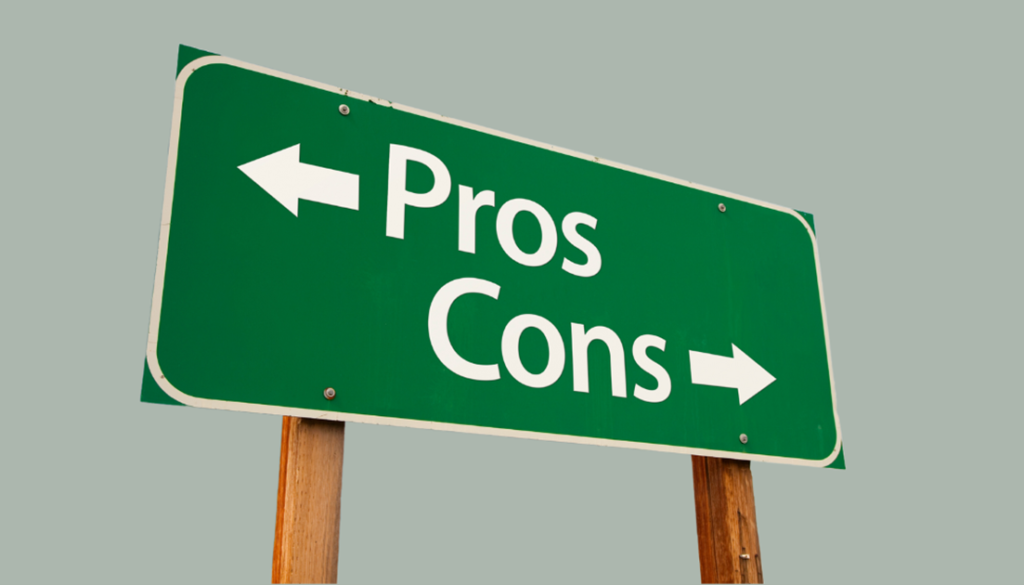If you have decided to work with an agency to support your family, the next big question is which one to pick! It is an important decision, as you could work intimately with that Company (and its staff) for a significant and intense period. Among other key decisions they will subsequently make on your behalf, you will likely be tied to their exclusive ability to create a pool of available surrogates. Their decision-making about your case will predetermine your ultimate pathway to parenthood and commit you to spending specific money. Their mistakes or oversights will most likely become your burden and cost. Your child’s health and well-being may depend on how thoroughly they screen your surrogate. This one decision will change your life forever.
In determining how to choose your agency, we have created a series of useful articles: How to Compare Agencies. The subject matter is vast, so we need to break it down into a series of four separate articles. This is Part One, where we will look at the different types of agencies and the positives and negatives associated with each type. The other articles are: How to Compare Agencies Part 2 – When the Match Falls Apart; How to Compare Agencies Part 3 – Analyzing the Costs and How to Compare Agencies Part 4 – Selecting an Agency.
Steps to Comparing Agencies
Step 1: Choose the country.
Please refer to our Article entitled: Which is the Best Country for Surrogacy?
Step 2: Review the website of each agency.
Step 3: Call each agency and book a time to have a more in-depth conversation with a staff member. Surrogacy agencies equally represent intended parents and surrogates. They need both intended parents and surrogates to be able to operate. Therefore, the level of professionalism offered to you by the agency will likely be the same level of professionalism they provide potential surrogates. So, go ahead and judge the agency from your very first interaction onward.
Step 4: Look at the costs.
Step 5: Request to speak with at least one intended parent who has completed their journey with the agency.
The “Types” of Surrogacy Agencies
A starting point is to understand the differences between the kinds of agencies that exist.
Small Agencies
These are usually start-ups that are new to the industry. Most often, agencies are started by prior surrogates or previous intended parents who want to remain involved in the field. Some believe they can do a better job in offering services than their agency did. Employees of agencies also frequently leave and start their businesses. Everyone must start somewhere, but typically, small agencies need more experience.
Positives:
- They usually have some expertise because they have had prior involvement in the field.
- They are usually invested in helping and making a positive difference in this field.
- Being a small agency usually means having the time to invest in each case.
- Due to their small size, their employees must multitask, and as they are exposed to various tasks, their knowledge and expertise proliferate.
- As their overheads may be smaller, they are usually cheaper to secure than their larger counterparts.

Negatives:
- Their knowledge base can be very narrow and limited. They may not know when to reject a candidate.
- They usually have a small or limited pool of surrogates to offer, and if a match falls through, there is frequently a long delay in being rematched with another surrogate.
- May have limited knowledge or incentives to screen surrogates thoroughly. The capital outlay can be high for pre-screen candidates, and smaller agencies may not have this option.
- May not fully know or anticipate all the business protocols necessary in their state or country, so they may inadvertently become overwhelmed with administrative duties.
- Often have a small staff, sometimes 1 or 2 people. When one becomes ill, goes on vacation, or resigns, there is no immediate substitute to take over those cases, or the remaining employee is overwhelmed. Similarly, few options are available if the intended parent or surrogate does not get on well with their assigned staff member.
Medium to Large Agencies
These agencies have usually been involved in the field full-time for at least five years and have accumulated valuable knowledge, skills, and experience.
Positive:
- Having years of experience behind them means they are usually better at handling unusual circumstances. Smaller agencies may have little clue about how to deal with things such as Zika or Covid-19, a complicated or high-risk pregnancy, or complicated changes of circumstances – such as a surrogate’s husband being diagnosed with a terminal illness, or her insurance being canceled. A surrogate could be involved in a car accident, and the ambulance takes her to the closest hospital, which happens to be across a state line to a territory where the rules of surrogacy are not ideal. The larger the agency, the higher the chances that they have experience of such events.
-
- Have larger staff that are frequently cross-trained and can cover for each other if there is an illness, vacation taken, or a staffer who leaves the agency.
- If an intended parent or surrogate requests a different staff person be assigned to their case, this option is available.
- Often, the staff becomes specialized in a specific function, which permits a deeper level of knowledge to be available to the entire agency.
- They frequently have a pool of surrogates in screening and ready for matching. This is important as this permits the agency to implement a stricter screening criterion for surrogates.
- If an intended parent needs to be rematched with another surrogate, the wait for the rematch is reasonable as they have an existing pool of surrogates in screening to draw upon.
- The marketing budgets of these agencies are usually healthy, allowing them to cast a wider net via their marketing plans, enabling them to attract more applications and more qualified surrogates.
Negative:
- May not receive the same level of personalized attention as that provided by a small agency with a small caseload.
- May be set in their ways and may not be as flexible to accommodate special requests.
- Typically, more expensive to retain than smaller agencies.
- May be linked or affiliated to professionals, resulting in less choice.
Linked Fertility Clinic & Agency
This is where a fertility clinic also provides its surrogacy agency in-house.
Positives:
- The agency fee is often considerably lower than an independent agency charges.
- Marketing costs to promote the fertility practice and the surrogacy agency often overlap resulting in savings on marketing costs.
- Surrogacy is a family-building process that includes many moving parts, all of which must work together for the journey to be successful. When you work with an in-house fertility clinic and surrogacy agency, you can expect the medical requirements to be much smoother and coordinated at every step.
- Having many relevant professionals under one roof can simplify and reduce the steps needed to communicate, coordinate, and organize your requirements.

Negatives:
- Some fertility clinics and surrogacy agencies can be set up as separate legal entities and managed by individual staff. This may provide little or no benefit or additional protection.
- The option of obtaining a second medical opinion or switching to a different fertility clinic may be uncomfortable when the clinic owns the agency.
- Your ‘in-house’ choice may be more restricted than seeking separate services, which may have a greater selection of services and options.
Law Firm Owned Agency
There is a growing trend for attorneys to expand their practice by opening their surrogacy agency.
Positives:
- Similar to the in-house fertility and surrogacy agencies where your family-building journey includes many moving parts, when you work with a law-firm-owned program, you can know that all aspects of their surrogate services will be aligned with all the important legal steps that third-party reproduction involves.
- Having many required professionals under one roof will reduce the steps needed to communicate, coordinate, and organize your necessary surrogacy services.
- Attorneys are also accountable to an oversight organization (usually some form of state bar organization). In contrast, most non-law-based agencies exist without any degree of scrutiny, accreditation, or oversight by a national board. All law firms must also meet specific operating standards, so when a law firm runs a surrogacy program, unlike agencies, they must still meet all these standards – such as being insured, having the proper knowledge of state laws, and more.
Negatives:
Staff are often asked to combine the duties for the law office and the surrogacy agency – resulting in them being unable to concentrate on one specific job. This combined role can dilute their ability to provide a quality service if they regularly feel overwhelmed or rushed to complete their daily tasks. Someone exclusively dedicated to one task generally results in more responsive and professional service.
- Like fertility clinic-owned agencies, some law firm-owned surrogacy agencies are set up as separate legal entities and managed by individual staff. There is, therefore, no difference or additional protection between a legal firm-owned agency and any other agency. A law firm-owned ‘agency’ set up as a separate company has no obligation to follow any laws or behavior guidelines that apply to the legal field.
- Since your lawyer also owns the surrogacy agency, firing your attorney and hiring a different attorney may be impossible or, at the very least, extremely uncomfortable.
Surrogacy Consultants
Under Canadian Law, commercialized surrogacy agencies are illegal as you cannot pay an individual to “arrange the services of a surrogate mother.” There are estimated to be at least 15 professional surrogacy consultants in Canada who run programs that can provide information, referrals, support, and introductions to surrogate mothers. These agencies are neither legally allowed to match intended parents and surrogates nor manage the surrogacy process or pregnancy for a fee. Therefore, the responsibility for these tasks appears subtly devolved to the intended parents. However, surrogacy consultants usually navigate the laws to introduce qualified surrogates and arrange the surrogacy contract privately with their attorney. These Consultants can also make referrals to a mental health professional, lawyer, and fertility clinic to help move the process along. The practice of surrogacy in Canada is flourishing. Over the past few years, numerous provinces and territories have implemented fresh legislation to regulate surrogacy, reflecting a notably more favorable perspective.
Positive:
- Surrogacy consultants have openly operated in Canada for at least 18 years. In 2019, the Reimbursement Related to Assisted Human Reproduction Regulations were introduced. While uncompensated surrogacy is still the law, the new Regulations clarified what the intended parents could reimburse expenses. The new Regulations expressly state what fees can and cannot be paid. More importantly, the fact that no attempt was made to outlaw, redefine, or narrow the Surrogate Consultancy services presently operating in Canada suggests a tacit approval that these services can continue.
- Surrogacy in Canada is typically cheaper than in the USA, and non-Canadian citizens can legally pursue surrogacy in Canada.
- Valuable, Canada’s healthcare service typically extends to the surrogate and delivery if she and the intended parents are citizens. Should complications arise in the delivery, the costs of medical treatments are addressed. However, coverage does NOT apply to children of foreign citizens, even though the baby is considered a Canadian national. Therefore, any NICU (Neonatal Intensive Care Unit) costs associated with the newborn are the responsibility of any foreign intended parents. Arguably, NICU costs are considerably lower in Canada than in the USA.
- Babies born in Canada are automatically granted Canadian citizenship.
- There appears to be a movement by two Canadian Members of Parliament to permit compensation to surrogates and donors. Canada is far from this, but this is a positive step.
Negatives:
- Commercialized agencies are illegal in Canada and strictly prohibited by law. Under section 6 of the Assisted Human Reproduction Act 2004, no person shall Accept consideration (anything given or promised in exchange for something, not just money) for arranging for the services of a surrogate mother, offer to make such an arrangement for consideration, or advertise the arranging of such services and Pay, offer to pay, or advertise to pay another person to arrange for the services of a surrogate mother. Although it seems pretty clear that agencies cannot operate in Canada, the law appears to have looked the other way regarding Surrogacy Consultants. Although there seem to be minor differences between an agency and a surrogacy consultant, the difference appears to have been accepted. Surrogacy is a thriving business in Canada, but the wait time to be matched with a surrogate is often long.
- The matching process can only be described as an online dating site. The intended parents view a database, and if interested in a surrogate, the intended parents must reach out to her and arrange a meeting, phone call, or video conference. There appears to be little pre-screening done on these surrogates, and we see no evidence of psychological interview and testing, criminal background review, or medical testing before a match is made. This lack of pre-screening of surrogates means that intended parents could be emotionally and financially investing in someone who will never be cleared to continue.

- Because surrogacy cannot be marketed as openly as in other countries, recruiting surrogates is problematic, resulting in long wait times for intended parents to be matched.
- In most jurisdictions in Canada, a surrogate is considered the child’s legal mother, and a court order is necessary to establish the intended parents as the parents. If a surrogate does not relinquish the child to the parents, the court will likely decide custody based on the child’s best interest. There are no known cases in Canada involving a surrogate wanting to keep a baby.
Concierge Services
Concierge Services are professionals who help intended parents find the right surrogacy and egg donor agency or conduct searches on behalf of an intended parent based on the intended parent’s list of qualifications. Concierge Services should have no ownership or interest in any surrogacy, egg donor agency, or any other professional relationship with any other professional they refer services.
Positives:
- Experienced Concierges are usually well-regarded in surrogacy and are well-connected to other professionals. An intended parent can consult with them to discuss their “wish list.” The Concierge then uses their contacts to find the elusive surrogate for the intended parent by consulting with multiple agencies.
- These professionals usually have an in-depth knowledge of multiple agencies, their costs, success rates, professionalism, customer service, strengths, and weaknesses. This information is acquired over years of working in the field (so it pays to check how long they have been in business), and their knowledge is readily available to be shared with intended parents.
Negatives:
- Concierge Services will only have access to those agencies that elect to work with them. It is worth remembering that most agencies have a waiting list of intended parents and therefore have no need to share their surrogate databases with anyone else.
- Most agencies will quickly match their exceptional surrogates as soon as they can screen them, so these surrogates are never available for Concierge Services to view.
- These services cost over and above the agency fee, making the entire process more expensive.
This series of articles: How to Compare Agencies has been divided into 4 Parts:
Part 1: Types of Surrogacy Agencies
Part 2: When the Match Falls Apart
Part 3: Cost Analysis (USA Agencies)
Part 4: Selecting an Agency
Author: Karen Synesiou, Infertility Portal, Inc.


